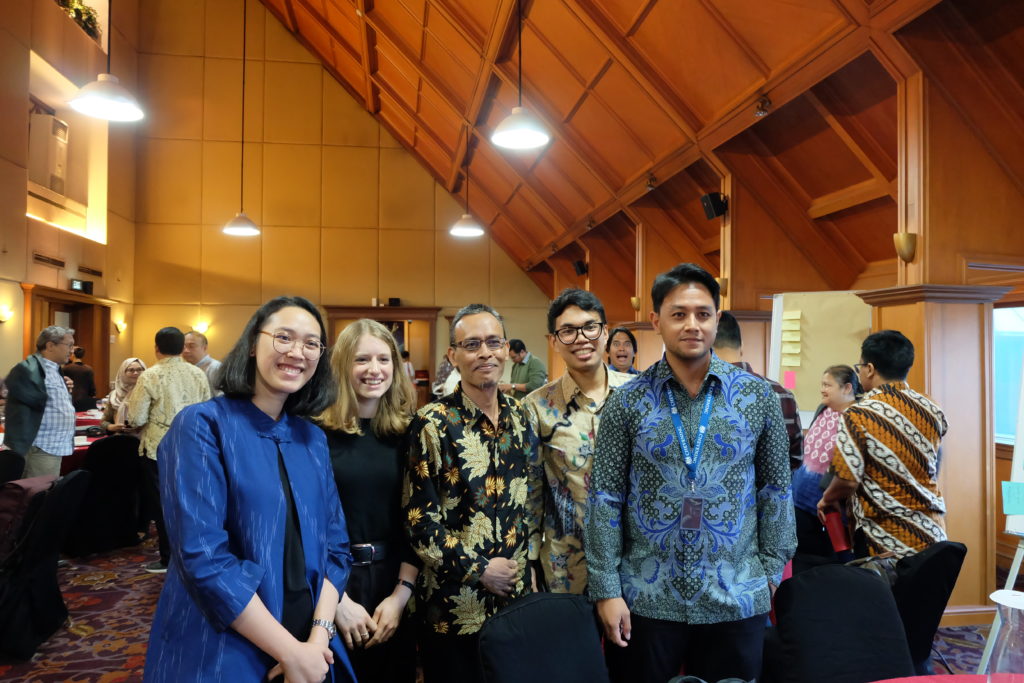Supporting local actors in Indonesia: GCF concept note writing workshop
30 January 2020, Alexandra Milano, Category: All insights, News, Tags: adaptation, Capacity building, climate finance, country ownership, gcf, GGGI, GGGI Indonesia, Green Climate Fund, mitigation, resilience, Training, UNFCCC

In mid-January, the E Co. team travelled back to Jakarta to deliver training on project design for the Green Climate Fund (GCF). Held over three days, the training covered a number of topics including: the GCF investment criteria; problem and solution trees; the climate rationale; theory of change; logframes; project finance and budgets; and co-financing requirements.
Part 2 of 3 to empower local actors
50 participants attended the training. They were selected by the Indonesian NDA and the Global Green Growth Institute (GGGI) after submitting a project concept note for the GCF. Participants brought these concept notes to the training and revised them in interactive group work sessions designed to encourage “learning by doing.” For example, each team developed their own problem and solution trees and logframes to enable them to better articulate their project’s theory of change. E Co. paired conceptual knowledge with practicality to ensure that the techniques and best practices taught during the training met participants’ needs.
The next stage of the assignment, which will begin in February, is remote coaching. E Co. will provide support to 25 project proponents through several rounds of written feedback, teleconferences and webinars. This phase of the project will provide participants with personalised support to develop fundable GCF concept notes.
This assignment is part of a larger endeavour to provide technical assistance to Indonesian stakeholders from civil society organisations, local government and the private sector so that the country can access GCF funds. Currently, Indonesia has two approved GCF projects resulting in a total of USD 200 million in approved funding.
E Co. is eager to support local actors in accessing climate finance. At present, it is unknown how much climate finance flows to local actors despite evidence of the effectiveness of local action.[1] A paper from BRACED found that with sufficient expertise at the local levels, channelling climate finance to sub-national actors such as local governments enables adaptation activities that meet the needs of communities. This also allows for a local needs to be more deeply embedded in investment decisions.[2] As the climate crisis deepens, it is essential to support local actors and the effective use of climate funds. Supporting local stakeholders through training and other capacity building activities decentralises climate finance and paves the way for community-driven solutions.
Bibliography
[1] Soanes, M, Rai, N, Steele, P, Shakya, C and Macgregor, J (2017) Delivering real change: getting international climate finance to the local level. IIED Working Paper. Available at: http://pubs.iied.org/10178IIED
[2] Caravani, A, Greene, S, Trujillo, N C, and Amsalu A (2017) Decentralising climate finance: Insights from Kenya and Ethiopia. Working Paper. Available at: https://www.odi.org/sites/odi.org.uk/files/resource-documents/11804.pdf
Did you find this article useful? Yes 🙂 No 🙁
Get in touch!
Would you or your team like to learn more about our international climate finance training workshops? Have a look at our training services here.
Join the conversation by posting a comment below. You can either use your social account, by clicking on the corresponding icons or simply fill in the form below. All comments are moderated.